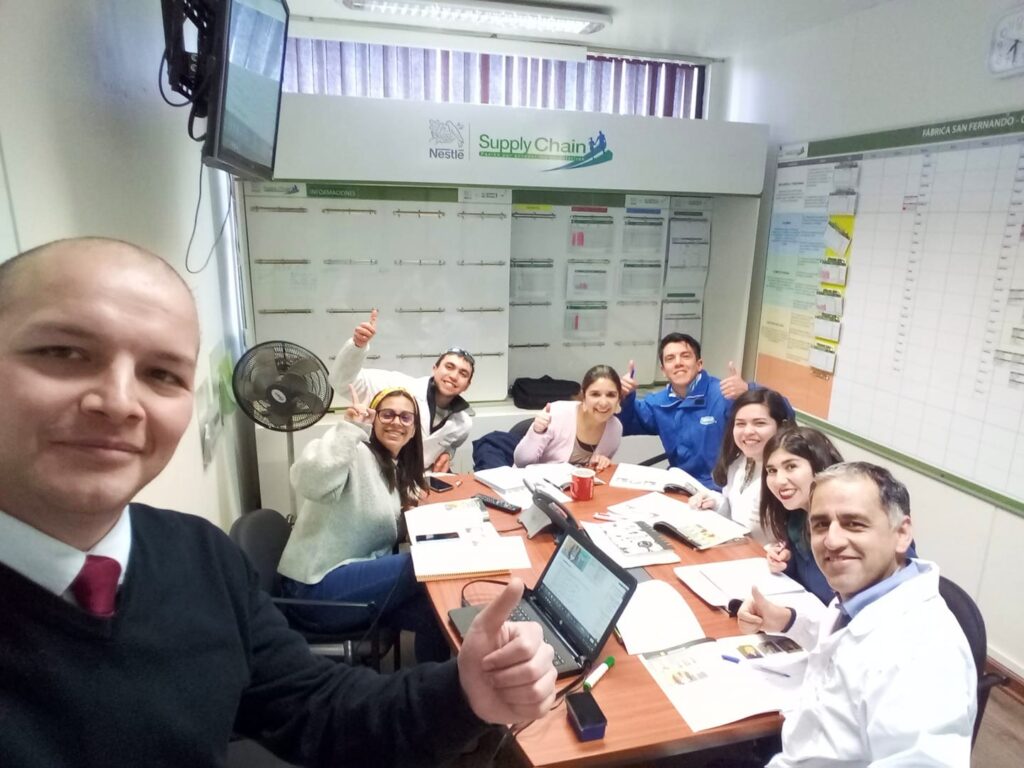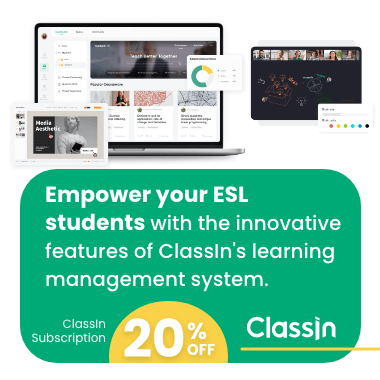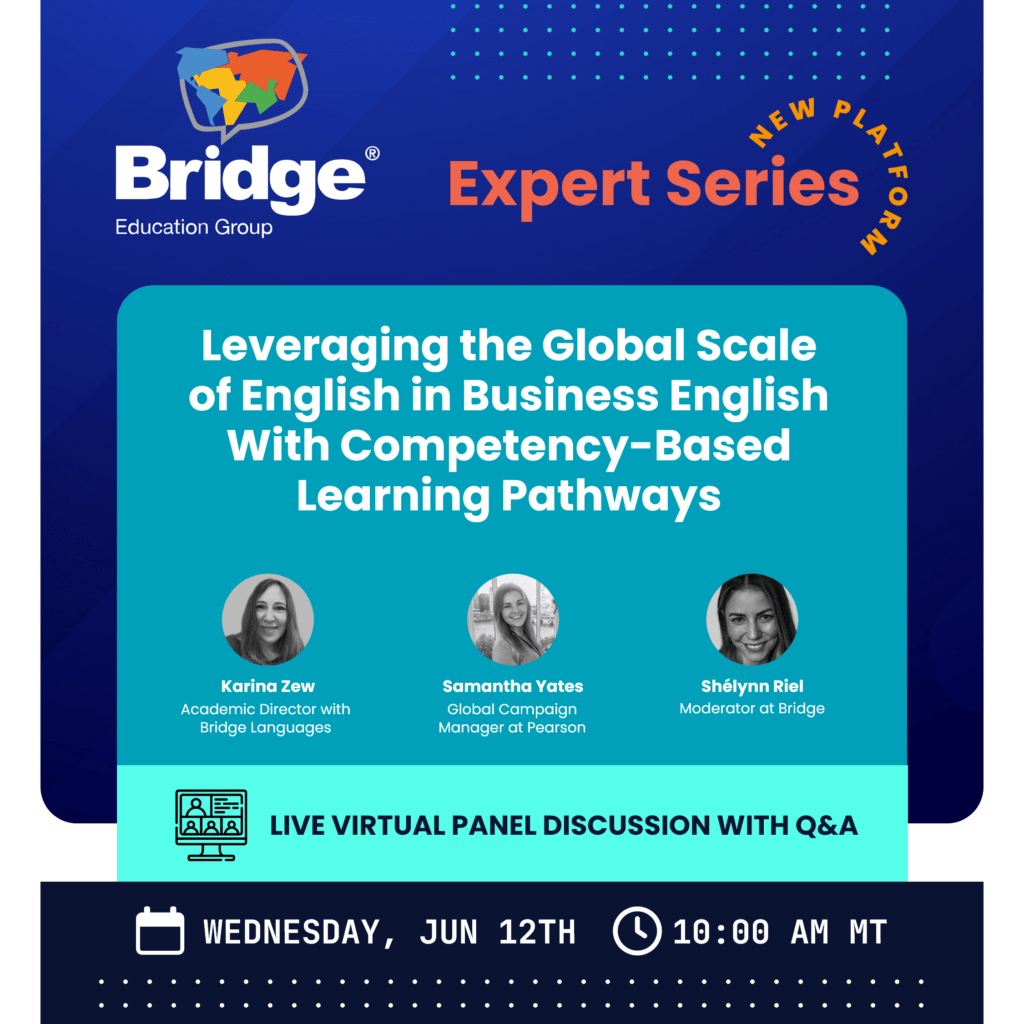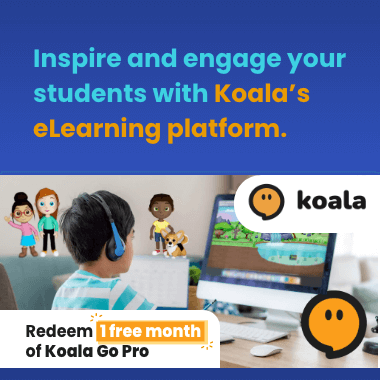Have you decided to join the global ESL teacher community? Maybe you’ve taken an online TEFL course to certify yourself as a well-trained, professional English teacher, but are still nervous about that first job interview. One strategy to prepare is to think about possible interview questions and how you might incorporate the terms and concepts you’ve learned in your course into your answers. Being familiar with some TEFL/TESOL buzzwords can help you do just that. Here’s a rundown of what these buzzwords are all about and a sampling of ones to know before interviewing for English teaching jobs.
What is a TEFL/TESOL buzzword?
Every industry, from technology to business to education, has its buzzwords. Buzzwords are words or phrases of-the-moment that are specific to that particular field and that can indicate knowledge of that field, if used correctly. While you don’t want to pepper your language with too much jargon during a TEFL/TESOL job interview, familiarity with common buzzwords related to teaching English is essential.
What are some TEFL/TESOL buzzwords to be familiar with for my job interview?
These are some important terms to know in order to sound the part of a skilled English teacher and really shine in a TEFL/TESOL interview.
L1/ L2
L1 is the English learner’s first or native language, while L2 is the English learner’s secondary language. Using these terms smoothly will help you describe your teaching methods in a very professional manner. For example, the interviewer may ask your opinion on students using their L1 in class, meaning speaking in their native language rather than in English.

Receptive vs. productive skills
These are categories for the different language skills you’ll teach your students. Receptive skills are the skills needed to receive language, and include listening and reading. Productive skills are the skills students need to actively produce language, and include speaking and writing. An interviewer may ask, for example, which you feel is more important for students to focus on, receptive or productive skills.
Needs Assessment
This is a way to determine the gap between the students’ language needs and their current language abilities. The needs assessment helps you, as a teacher, plan your curriculum and lessons. A teacher usually assesses students’ needs at the start of the term via a spoken interview, a written questionnaire, or a combination of various methods.
ESP
This stands for English for Specific Purposes and refers to teaching English for occupational or academic purposes. If you teach ESP, you will work with a particular group of learners, such as university students or people in a certain career field. Your goal is to provide these students with the particular vocabulary and language skills they’ll need to succeed. This area of English teaching is very popular, so you can see during your job interview if this is what you might be teaching.
Learning styles
Learning styles describe the various ways that particular students prefer to learn a language.
- Auditory learners have a preference for hearing the language.
- Visual learners prefer seeing it written down.
- Kinesthetic learners prefer to do something physical whilst experiencing the language.
These terms are valuable to use during your TEFL/TESOL interview to demonstrate your awareness of students’ individual needs and the importance of creating lesson plans that incorporate all types of learners and learning styles.

Authentic
Authentic materials, tasks, language, and texts are taken from a real-life context, rather than from a textbook. It’s often considered preferable to use authentic materials in class to help students experience the language in context.
Realia, or actual items, are one way authentic materials can be used when teaching online or in the classroom. For example, you might teach the vocabulary word “apple” by holding a real apple in your hand, rather than writing the word “apple” on the whiteboard or showing students an image of an apple.
What other terms can I use that will make me stand out?
It’s great to use professional terms in your TEFL/TESOL interview, but you don’t want to overdo it, either. You also want to avoid sounding too rehearsed, as employers like spontaneity, and they want to see that you can think on your feet. However, if you want to step up your teaching lingo while you prepare for a TEFL/TESOL interview, you can study a few more buzzwords, abbreviations, and English teaching terms to help you go to your job interview with confidence.
ESL/EFL
These terms are very common and often used interchangeably but there is, in fact, a difference between them, and being aware of that difference can help set you apart during a job interview.
ESL stands for English as a Second Language. ESL describes the field of English as a second language instruction and includes courses or programs designed for students learning English as an additional language in an English-speaking country. A teacher at a language institute in the US who teaches students of various nationalities is teaching ESL.
EFL, on the other hand, stands for English as a Foreign Language and describes the teaching of English to students in a foreign, non-English speaking country. A teacher at a language institute in China working with Chinese children is teaching EFL.
CLIL
Content and Language Integrated Learning refers to teaching subjects such as science, history, and geography to students through a foreign language – in your case, English. This is a great term to know and use if you are applying for a job with a public or private elementary, junior, and senior high school, in which you will teach subjects other than English, in English.
CEFR
The Common European Framework of Reference for Languages is an international standard for describing language ability. A student might tell you his or her “CEFR level” for example, meaning level of English proficiency. CEFR distinguishes levels A1 – C2, with A1 being the lowest and C2 the highest level of language ability.
Feedback
Feedback is the response learners get (from the teacher) when they attempt to communicate. This can involve correction, acknowledgment, or requests for clarification. For example, an interviewer may ask you how you’d provide feedback to a student who made a grammatical error during a speaking exercise focused on fluency.
Teaching methods
You may be asked what your preferred teaching methods are, so it’s worth spending some extra time reviewing what you learned in your TEFL/TESOL course. Some learning methods include:
- Direct Method
- Grammar Translation
- Audio-Lingual
- Total Physical Response (TPR)
The Direct Method is the most common approach in TEFL/TESOL, in which translation is discouraged and the target language is used as much as possible. Grammar is emphasized and students learn English naturally through listening and speaking.
These instructional methods and other fundamentals of teaching English are detailed in Bridge TEFL courses.
Communicative Competence
This refers to one’s ability to use the target language effectively for communication by using the language accurately and appropriately. Communicative competence emphasizes that proficiency in a language goes beyond simply using the grammar and vocabulary correctly, and involves a more holistic grasp of the language for effective communication.
What are some specific teaching online terms?
If you are planning on teaching English online, here are some terms to use in your interview that will show that you know your way around a virtual classroom.
Asynchronous vs. synchronous vs. hybrid learning
Synchronous learning is learning that happens at the same time for the instructor and the learners, meaning that there’s real-time interaction between them. This could be via video chat, video conferencing, or other live communication software.
Asynchronous learning doesn’t happen at the same time. Students can work on their tasks at their own pace and time. Discussion lists or shared class blogs can be part of asynchronous classes.
Hybrid learning takes parts from both asynchronous and synchronous classes and blends them together.
Most online teaching jobs involve synchronous learning, but knowledge of these terms and some idea of the pros can cons of each method can prove useful during your interview.

LMS
A Learning Management System is a software system designed to help teachers manage online educational courses. An LMS generally includes course content, communication tools, grading tools, student tracking, grouping facilities, and control over who accesses the course. Other terms for this system are Virtual Learning Environments (VLEs) or Managed Learning Environments (MLEs).
While many online tutoring companies may simply refer to their learning “platform,” you may also hear the term LMS during your interview, or you might find an opportunity to discuss a time you gained experience working with an LMS, such as when taking your TEFL/TESOL course with Bridge, or taking a university course online.
WebQuest
This refers to a project which requires learners to use Internet resources and websites to find information. An example of a WebQuest could be an assignment for your Business English class to work in small groups to conduct online research and compare the mission and values statements of top companies in their industry.
A WebQuest has four main stages:
- Introduction
- Task
- Process
- Evaluation
If you mention this at your interview as part of your teaching procedures, you are sure to make a good impression, especially since project-based learning is becoming more and more popular these days.
Preparing for your TEFL/TESOL job interview is crucial in order to get the job. However, always keep in mind that your bright personality and your character are the most important assets, which is why you chose teaching in the first place, right?







